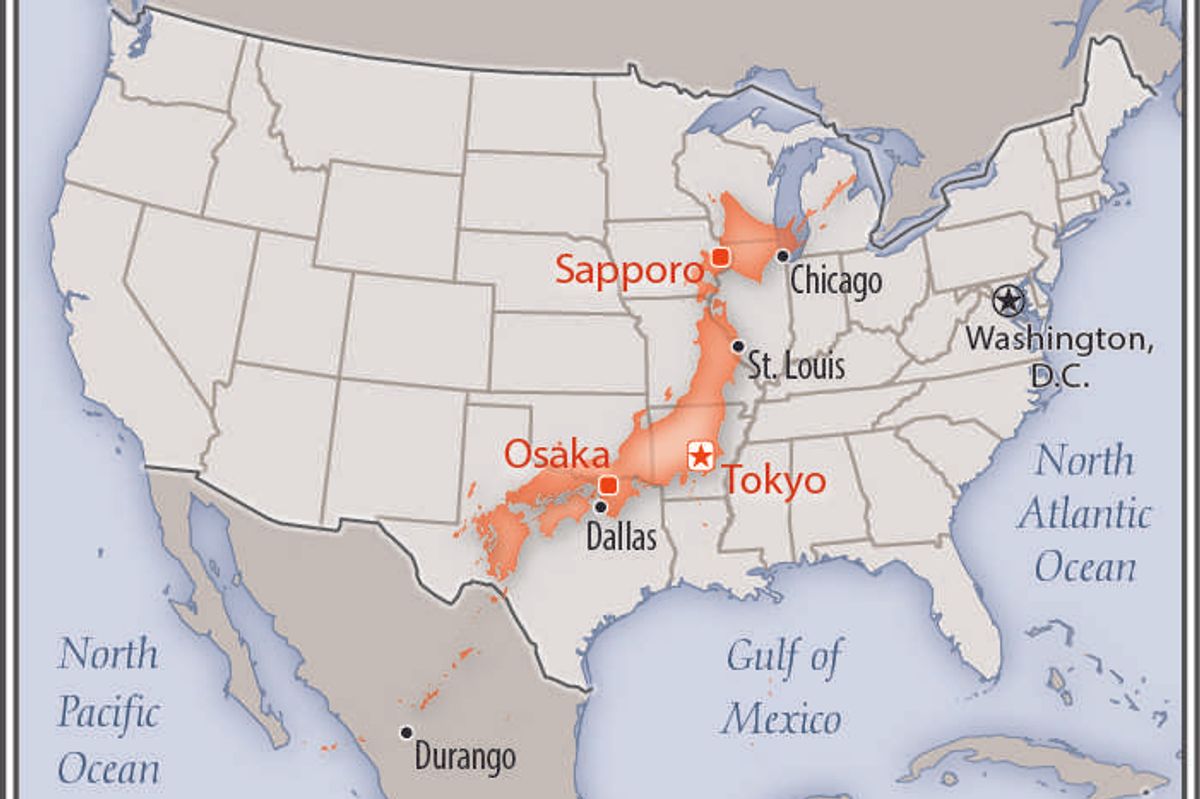Alexandria Ocasio-Cortez, actual swamp-drainer, blasts what Congress pays for healthcare.
Alexandria Ocasio-Cortez is bringing a refreshing perspective rarely seen on Capitol Hill.
Serving in Congress is not a poor person's—or even a middle-class person's—game. According to the income and asset reports Senators and Representatives are required to submit, the median wealth of a U.S. Senator is $3.2 million and the median wealth of a U.S. Representative is $900,000. That doesn't include the value of their residence, which for most Americans, is the most valuable asset they hold.
So yeah. Congress is quite literally a bunch of rich people.
Then along comes Alexandria Ocasio-Cortez (sometimes known as AOC), a 29-year-old former waitress from the Bronx, who will become the youngest woman to serve in Congress when she is sworn in in January. She's a bright, cum laude graduate of Boston University, with a degree in International Relations and and minor in Economics. She's also a science wiz, and even has an asteroid named after her for microbiology research she did in high school.
She's no slouch. But she has lived as most of us do, and has faced the same economic choices and constraints those who don't have anywhere near a million dollars live with.
AOC tweeted about how much less she'll pay for healthcare in Congress than she did as a waitress, and it hit a nerve.
Healthcare is a huge concern for many Americans. We pay more for healthcare than any other industrialized nation—by a lot—and it's not guaranteed. We live in a country where people go bankrupt because they can't afford their medical bills, while every other developed nation has figured out how to provide universal healthcare to their citizens.
But the people who make the decisions about healthcare are the ones least likely to be affected by our problematic policies—a point Ocasio-Cortez made clear in a tweet.
"In my on-boarding in Congress, I get to pick my insurance plan," she wrote.
"As a waitress, I had to pay more than TWICE what I'd pay as a member of Congress. It's frustrating that Congressmembers would deny other people affordability that they themselves enjoy. Time for #MedicareForAll."
She also pointed out the ridiculousness of choosing plans and the solution that 70% of Americans support.
Ocasio-Cortez was all of us when she explained that she was "pretty sure one [of] Dante's Circles of Hell includes scrolling through a mirror-hall of agonizingly similar healthcare plans like 'UHG Choice Master HMO 1800' vs. 'RedGo Option Plus EPO 2000.' I don't know one normal person in this country that actually enjoys open enrollment."
She's so right. Healthcare is unnecessarily complicated and open enrollment often feels like it's designed to make smart people feel stupid.
She went on to explain the simple truth that most Americans want what literally every other country in the developed world has.
"People don't want overly complicated choice between pricey, low-quality plans. We want an affordable solution that covers our needs, like the rest of the modern world.
Medicare for All:
- Single-payer system
- Covers physical, mental, & dental care
- 0 due *at point of service*"
Amen. With 70% of Americans now in support of a Medicare-for-all healthcare model, Congress has a duty to figure out how to make it happen.
BTW, this is what "draining the swamp" actually looks like.
As a reminder, the average Congress member gets paid $174,000 a year. Granted, Washington, D.C. is an expensive place to live. But that's a far cry from a waitress' salary, and New York isn't exactly known for low cost of living. An individual making $174,000 is already well-off financially, so adding on a low-cost healthcare plan does nothing to help our legislators understand the struggles so many Americans face when it comes to paying for healthcare.
It's a bit reminiscent of billionaire Warren Buffett pointing out that he payed a lower tax rate than his secretary. When millionaires and billionaires are provided huge tax breaks, corporations are given welfare, and Congressmembers are handed affordable healthcare, how are the wealthy supposed to relate to middle- and lower-income Americans' economic woes? How can they possibly understand what a financial burden our healthcare system really is on the average American citizen?
The answer appears to be electing people like Alexandria Ocasio-Cortez, an average American who is smart and determined and willing to speak truth to power. This is what electing younger, more down-to-earth, middle class or working class Americans who weren't born with a silver spoon in their mouth means. This is what "draining the swamp" actually looks like.
Our healthcare system is sitting at the bottom of that swamp, and the more legislators we elect who understand that, the sooner we'll catch up to the rest of the modern world in guaranteeing affordable healthcare for our citizens.



 A
A 

 Each of those arms has its own brain?
Each of those arms has its own brain?
 A man sleeps peacefully.
A man sleeps peacefully.  Woman snuggled in bed.
Woman snuggled in bed.
 The size of Japan compared to the United States.Image via Wikimedia
The size of Japan compared to the United States.Image via Wikimedia
Communications expert shares the 7-word phrase to shoot down anyone being disrespectful